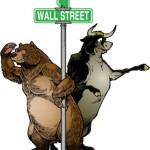 That’s an interesting question indeed, and Seeking Alpha tried to cover some ‘dos’ and ‘don’ts’ via “An ETF Primer for Retirees and Conservative Investors.”
That’s an interesting question indeed, and Seeking Alpha tried to cover some ‘dos’ and ‘don’ts’ via “An ETF Primer for Retirees and Conservative Investors.”
Here are some highlights, but I suggest you read the entire article if that topic is of interest to you:
Over the past few years, exchange-traded funds have made a big impact on the 80-year-old mutual fund industry. But do these new products belong in conservative portfolios?
Some regulators and investors have warned about hidden risks in ETFs and the dangers of exotic investment options. While many of their concerns are valid, we think tarring the whole industry is throwing the baby out with the bath water. Not all ETFs have the same operational and investment risks. In fact, many ETFs are perfectly suitable for a retiree’s portfolio. They’re easy to spot, once you know what traits to look for: simplicity, low costs, and diversification. Here we provide quick tips on how to navigate through the muddied waters.
Keep It Simple
Not all investors need ETFs. Sure, they may be tax efficient and cheap, but so are many index mutual funds. Sometimes ETFs may not justify their added complexity. You can save a few bucks changing the motor oil yourself, but I wouldn’t recommend it to everyone. ETFs are at least somewhat hands-on. They are bought and sold like stocks, and also have similar liquidity considerations. Trading a less-active ETF, say one with less than $100 million in assets, requires a bit more caution than buying a mutual fund. You might end up buying at a premium or selling at a discount.
Fortunately, the cheapest, most efficient ETFs tend to be liquid. Stick to big ETFs for an added measure of safety. And always use limit orders to buy ETFs near net asset value. You can get a real-time quote on the NAV by appending “.IV” to an ETF’s ticker symbol when you search for it. Even rare events like the flash crash, which briefly resulted in many ETFs trading at steep discounts, could’ve been avoided by judicious use of limit orders.
…
Good ETF, Bad ETF
A retiree will likely only need to use ETFs for asset allocation. Such ETFs track broad, diversified indexes the MSCI U.S. Broad Market Index or the Barclays Aggregate Bond Index. Vanguard Total Stock Market ETF (VTI) or iShares Barclays Aggregate Bond (AGG) are great choices. They’re simple, transparent, cheap, and liquid. While most ETFs are index funds, not all indexes are good. Some are essentially computer-run active strategies or alternative weightings that may or may not make sense. A good way to make sense of whether an ETF is good is to do due diligence by reading Morningstar’s ETF reports.
The broad diversification of ETFs means that a complete portfolio can be built with just a few securities.
…
In summary, retirees and cautious investors can benefit from certain ETFs but there is no obligation to go outside your comfort zone. Keep in mind that not all ETFs are user friendly and all ETFs require at least some basic trading knowledge. When planning your estate, it’s best to simplify your portfolio to avoid creating a future burden.
I have touched on several of the above points before, especially the use of High Volume ETFs. My preference to measure that is by average daily volume and not total assets. It simply gives me a better representation of consistent activity.
Keeping it simple is something I wholeheartedly agree with. I have seen small portfolios with 35 different ETFs and mutual funds. Besides this being a tracking nightmare, it’s just overkill. If you are looking for some portfolio ideas, take a look at my weekly updated ETF Model Portfolios. They work for retirees and conservative investors alike.
One thing the above article fell short on was the use of trailing sell stops, which is the key to successful investing and managing downside risk. This tool will allow a retiree or otherwise conservative investor to look for exposure in the market knowing at all times what his risk percentage will be.
Working without trailing sell stops, or first determining the trend of the general market, as I advocate, is simply asking for trouble. We are living in an uncertain world, and you need to use all tools available to not only make better investment decisions, but also to have a definitive plan in place to limit your risk, should adverse market conditions suddenly pull the rug out from under the bullish crowd.
Contact Ulli